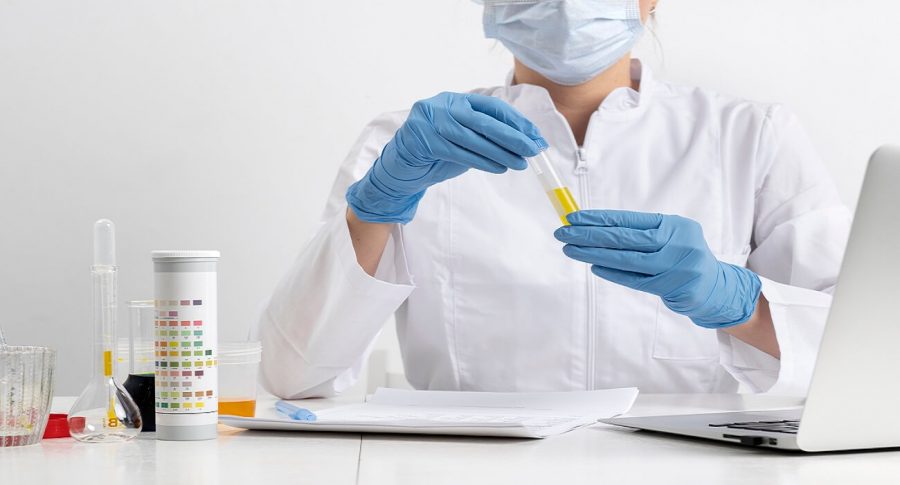DNA, or deoxyribonucleic acid, is what constitutes your biological self. Additionally, your DNA might provide details about your development, aging, and health. Many are wondering if home urine testing may give the same findings as at-home DNA testing kits, which are becoming popular and usually need saliva samples. While there is some DNA in urine, it is not nearly as much as in blood or saliva. Urine also deteriorates DNA more quickly, which makes it challenging to extract and yield accurate test results. To find out more about the DNA in your urine and the insights it may have for your general health, continue reading.
How long does urine hold DNA?
In principle, DNA is not present in urine. On the other hand, epithelial cells that are useful for extracting DNA may be found in urine. Conversely, epithelial cells are not normally excreted in the urine of healthy individuals. While not nearly as much as in blood or saliva, urine does contain some DNA. Furthermore, DNA breaks down more quickly in urine, which makes it challenging to extract and yield accurate test results. However, this DNA is associated with the existence of epithelial cells, not with the pee itself. DNA is frequently easier to find in female pee because females have greater quantities of epithelial cells that pass through the vaginal walls and into the urine. After up to 28 days of storage, recovery is improved at a temperature of -80°C.
Is there DNA in urine?
Nucleotides, which include phosphate groups, nitrogen bases, and 2-deoxyribose, make up DNA. White blood cells and epithelial cells, which are present in the outer layers of your skin, assist in measuring the precise markers in each strand of DNA through the blood. In addition to blood, saliva, hair follicles, and decaying bones can also contain potential DNA evidence. Urine contains DNA. However, this is only because epithelial cells are present in the urine, not the pee itself. In fact, because women may have greater numbers of epithelial cells entering their urine through the vaginal walls, DNA may frequently be identified more easily in female pee.
Does pee contain DNA?
While urine does contain some DNA, it is far less abundant than DNA found in other sources, such as blood or saliva. Urine alone, however, does not always mean that no DNA may be extracted. White blood cells or epithelial cells are the two most likely sources of DNA discovered in urine. Urinary tract epithelial cells are commonly lost and end up in the urine. When the body fights an illness, white blood cells found in the blood are expelled into the urine. There are other ways to extract DNA from urine, but the most popular one is the polymerase chain reaction, or PCR. Using PCR, DNA may be amplified, making it easier to detect and analyze. Alongside many other reasons for getting DNA tests with urine samples, one reason can be infidelity DNA testing. Since collecting DNA evidence for infidelity tests is complicated, one can go for any suspected urine samples.
How long does urine hold DNA at room temperature?
When a person urinates or defecates, their body’s cells actively die. The DNA kept in these cells is thus broken down by several processes. We refer to this as lysis.
As said before, our bodies require hundreds of thousands of informational components that can be easily found in a DNA test. Urine also has no reason to have enough DNA for a test because DNA stays inside cells. In other words, if urine contains more DNA than is usually observed after it leaves the body, it would still be insufficient since the majority of DNA has been broken down by natural processes. The urine sample should be kept in the refrigerator for no more than 24 hours at about 4C (39F) if you are unable to turn it in within an hour. The germs in the urine sample might grow if it isn’t refrigerated. If this occurs, overgrowth may have an impact on the test findings.
How long is a urine sample good for?
When fresh urine is stored at 4°C or below, the DNA is severely degraded, making DNA recovery more challenging over extended storage times. It has previously been shown that fresh urine can provide DNA suitable for PCR analysis in healthy individuals. When fresh pee is stored at 4°C or below, the DNA is severely degraded, making DNA recovery more challenging over extended storage times.
Choose Clarity with DNA Test
Get Accurate Answers With our Test!.
-
- Accurate
- Quick Result
- Private and Secure
- Affordable

Conclusion
From diagnosing diseases to drug testing, a urine test is the most common test taken at clinics or workplaces. With the discovery of urine containing genetic material, the job of DNA testing facilities becomes easier to serve every client. For identifying paternity or performing infidelity tests, choosing a reliable DNA testing facility like Face DNA Test helps each get answers to questions. With this guide, individuals are made aware of new scientific means of getting the answers with a urine DNA test, what to expect, and how to preserve DNA in urine for a DNA testing procedure.







Leave a Reply
Your email is safe with us.
You must be logged in to post a comment.